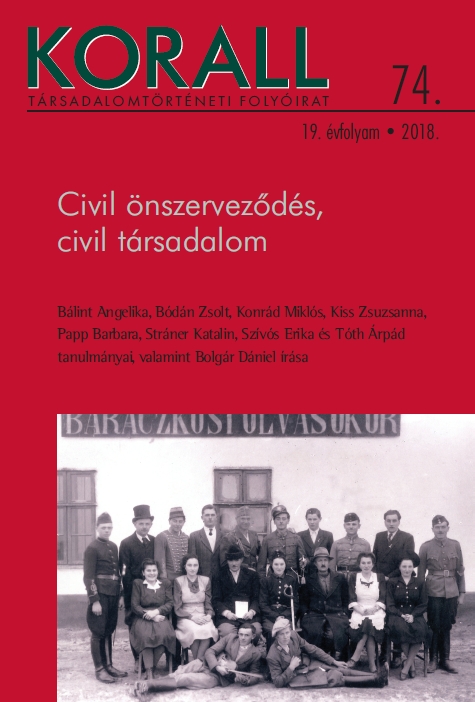„Erjedő idők”. Civil önszerveződés és pszichoanalízis (1987–1988)
„Fermenting Times”. Civil Self-Organisation and Psychoanalysis (1987–1988)
Author(s): Barbara PappSubject(s): Social history, Post-War period (1950 - 1989)
Published by: KORALL Társadalomtörténeti Egyesület
Keywords: hungary;social history;psychohistory;civil society;socialist era;
Summary/Abstract: In the autumn of 1987, the Psychoanalytic Working Group organised the international conference “Trauma Processing in Adult and Child Analysis” in Budapest. The large-scale two-day conference, conducted in four languages, was interspersed with social events. It was significant not only because the last con- ference of a similar theme was held in 1937 but because it was a milestone in the renewal of the formerly much prized Hungarian Psychoanalytical Association. The conference reintegrated the association into international academic life even though it was formally not re-established until 1989 when the parliament passed the new legislation to regulate associations. The ambiguity of the relationship between the establishment and the forming and re-forming psychoanalytical society is amply demonstrated by the fact that the event was hosted by the Hun- garian Academy of Sciences but was opened by József Antall. Antall, who later became prime minister, was at the time a medical historian and the director of the Library of the History of Medicine, known for his opposition views. While the public appearance of the Hungarian working group was a momentous event for the international psychoanalytical association, the affiliated exhibition about “The History of Psychoanalysis in Hungary” later served as a cornerstone for the foundation of the Sándor Ferenczi Association, created with the aim to fos- ter the traditions of the “Budapest School” of psychoanalysis. Through the case study of the now thirty-year-old Ferenczi Association, the study presents the ways in which associations could be established in the late Kádár era, as well as the relationship between the establishment and civil organisations at the time.
Journal: Korall - Társadalomtörténeti folyóirat
- Issue Year: 2018
- Issue No: 74
- Page Range: 136-149
- Page Count: 144
- Language: Hungarian

